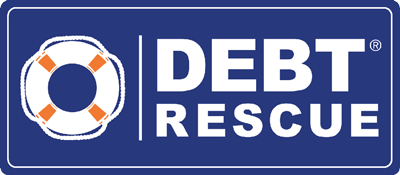Every January provides new opportunities to focus on goal setting for the year ahead. Although setting fitness, health and career goals are all good choices, your finances usually get pushed aside until you’re struggling with debts you can’t repay. It’s time to take a positive step forward and set some time aside this January to focus on your finances. Make 2020 your year and kick-start your financial goals with these 5 simple strategies.
1. Get on Top of Your Budget
If you don’t have a budget already, it’s a good time to start. A budget provides you with step-by-step instructions to reach your financial goals. Creating a budget ensures you:
- Have set goals and objectives you want to achieve, including short-term and long-term goals,
- Can easily address bad spending habits,
- Don’t spend more money than you have,
- Have money available for retirement, and
- Have money set aside for emergencies.
You can use our budget calculator to break down your income and expenses, view a summary of your budget and help you take control of your finances. The Australian Securities & Investments Commission (ASIC) also has a free budget planner available to work out where your money is going. After you’ve created a budget it’s time to take a look at your current debts and see which ones you can pay down.
2. Pay Down Your Debts
Unsecured debts, such as credit card debt and personal loans should be focused on first. These types of debt generally have higher interest rates than secured debts and can increase the risk of default if you’re not on top of them. There are many debt reduction strategies you can use to eliminate your debts, so choose what works best for you and your individual situation. These strategies all aim to help you become debt free as possible, whether it be by paying down the highest interest first or the largest debt.
3. Save More
Once your budget is up and running and you’ve worked out a plan to pay down your debts, it’s important to focus on increasing your savings. This can include making small, simple changes, such as switching electricity companies, or big changes, such as opening a high interest savings account. Small changes can make a big difference to your savings. Some simple ways to save money include:
- Paying your bills on time to avoid late fees and possibly get a discount,
- Decreasing the amount of takeaway coffee you buy each week,
- Reviewing your current interest rates compared to those on the market, and
- Making your lunch as home instead of buying it.
Interest rates in Australia are currently at an all-time low, but putting your savings into a high interest savings account will help you save in the long-term. To regularly increase your savings, it’s important to set up an automatic transfer of a set amount into your savings account each pay day.
Opening a term deposit at the start of the year is also a great way to ‘set and forget’ your savings. A term deposit allows you to lock away your savings to stop yourself from using the money on impulse purchases. Be sure to have enough money in an easily-accessible emergency fund in case of an unexpected financial blow.
4. Think About Your Super
When the word superannuation is mentioned, many of us instantly turn off and look the other way. However, superannuation is an important part of your finances and holds what money you will have to live on once you retire.
Compare Funds
The first step is to look at your current super fund and see how much you’re paying in fees. Compare these fees to other super funds on the market. If you’re paying higher fees – it may be time to make the switch.
Consolidate Your Super
If you have multiple super funds you should choose one and consolidate. Streamlining your super funds will save you money in fees, reduce your paperwork and make it easier to keep track of your super.
Increase Your Contributions
Topping up your superannuation is a great way to save for your retirement and ensure you have enough money available to live comfortably. There are two ways you can do this: making after-tax voluntary contributions, or salary sacrificing.
Avoid Using Super to Pay Off Debts
If you’re experiencing financial distress, withdrawing from your superannuation may seem like a good idea. You should avoid using your super to pay off debts as it’s only a short-term solution. Unless accessing your superannuation early will pay down all of your debts, or save your home from being repossessed, there are better long-term solutions available.
5. Consider Debt Relief
If your debts are piling up and you’re worried about your financial future, it may be time to consider talking to a professional about your options for debt relief. At Debt Rescue, we offer many debt relief solutions tailored to your financial circumstances. These include informal solutions such as a debt consolidation loan, mortgage refinancing or an Informal Debtstroyer Agreement or formal solutions such as a Part 9 Debt Agreement or Bankruptcy.
A debt relief solution can help you regain control of your finances and eliminate unsecured debts so you can get back to saving again.
Are You Experiencing Debt Stress?
If you’re experiencing financial hardship, it’s best to tackle your debts head-on. Get in touch with our expert team at Debt Rescue today on 1800 003 328 for a free consultation. We’ll assess your financial situation and recommend the best debt relief solution for your needs.
-137x60px.png)




